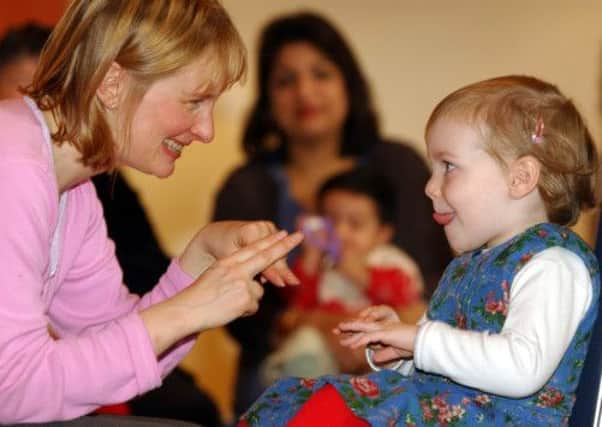Everyone deserves to be listened to


“I have skills as a good friend with people. I enjoy talking and being a good listener.” These words are from Ewen, who is supported to live in his own home by Sense Scotland.
It says a lot about what is important to him and a great many of the people we support across the country. Effective communication and empathy are important to Ewen, as well as friendships. He understands he is part of a communication partnership that succeeds or fails depending on the contribution of both participants.
Advertisement
Hide AdAdvertisement
Hide AdSense Scotland has been supporting children, young people and adults with complex communication support needs for more than 25 years and has always wrestled with the assumptions made around the needs and aspirations of the people we support. By focusing on communication, we have developed a better understanding of how people can express themselves through approaches and tools including speech, signing and gestures. But the best place to start is to just listen and respond to the people we support.
Enhanced quality of life
This approach frames all of our services and support, but in addition we have established valued networks where people can meet regularly to discuss their concerns as well as talking about what’s been happening in their lives. What comes through in these discussions is the value the people we support place on an enhanced quality of life. What do we mean by this?
Our support services, whether it is for children, young people and adults throughout the day, or for adults to live in their own home, is just the starting point for leading a truly fulfilled life. We have developed a range of “enhanced quality of life” services which aim to meet the interests and aspirations of the people we work with.
This means we now provide social and learning opportunities, outdoor activities, visual arts, drama and music which understand and cater for the boundless ambition and skills of the people we support. It could be experimental music jams, outdoor camps, learning new skills through employment or simply a chance to catch up with friends.
However, the biggest challenge is not a lack of drive or creativity. With the ongoing squeeze on funding for support services, these basic human needs are often ignored or seen as “added value” services.
So how is Sense Scotland supporting people to face and overcome these challenges?
Scottish Government funding helped establish Partners in Communication, an exciting inclusive communication project which develops and shares communication tools and approaches to better involve and include people with complex communication support needs. Individualised communication approaches are at the centre of Sense Scotland’s ethos. Through this approach, we recognise the diverse ways in which the people we work with are communicating their needs and wishes.
Early Years Team
Scottish Government funding has also enhanced our services with a new Early Years Team. Alongside our existing advisory team, this focuses on reaching families with children who have complex communication support needs during those crucial first years. At this stage, with the right communication approaches, a child and their family can be put on the right track, ensuring their needs and aspirations are at the heart of their support.
Advertisement
Hide AdAdvertisement
Hide AdWe recognise that communication is a two-way process and if there is communication impairment, it will exist at the level of the partnership – it is both partners’ problem.
This is fundamental to Sense Scotland’s approach. We are equal partners on a shared path with the people we support and it is often simple, creative approaches which can help people enjoy a richer life. A young man recently ticked off an item on his wish list, simply by getting tickets to see a Kings of Leon concert. This wasn’t down to a complex planning process of meetings, assessments and box-ticking; it was simply support staff remembering his wish, hustling a bit to get tickets, then going along to the gig as a like-minded fan, an equal partner.
But we must not be complacent as partners and advocates to those we support. We recognise their frustrations about not having access to the things that are important to them. We know about the barriers society can sometimes put in their way. It is our duty and obligation to ensure that everyone we work with, in whatever capacity, is listened to, understood and supported; not just to have their needs met, but to reach their individual aspirations.
• Graeme Thomson is communications officer at Sense Scotland www.sensescotland.org.uk